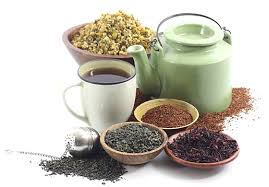What is Ayurvedic Medicine and how can it help heal the body?
What is Ayurvedic medicine? Where is it practiced? What are Ayurvedic herbs and how do they differ from other herbal medicines? You'll find the answers to those questions and more here in this article.
Ayurvedic Medicine Defined
Ayurvedic medicine or Ayurveda is the traditional medicinal practice of the sub-continent of India. Many of the practices were defined in ancient texts that are thousands of years old, although the practices have been refined as the years have gone by.
The importance of meditation, as opposed to medication, was recognized early on by Ayurvedic practitioners. They may have been the first to recognize the mind-body connection. Modern studies have confirmed the connection between good mental health and positive attitude with positive medical outcome, speedy recovery and fast wound healing. The connection between high stress and poor physical health has also been confirmed by modern studies.
Ayurvedic practitioners typically emphasize the importance of physical activity, including flexibility training through yoga poses and postures. The importance of diet is also emphasized. These practitioners were also among the first to recognize the connection between what we eat and how we feel.
Although many Ayurvedic practices are natural and non-invasive, early practitioners were able to perform successful surgeries. Surgical instruments of amazing quality for the time were designed by Ayurvedic surgeons. They are believed to have been the first to perform successful cataract surgery, for example.
Herbs and other natural food-based products were the medicines of Ayurveda. The Ayurvedic medicines still in use today are described in the following section.
How are Ayurvedic herbs used?
Hundreds of plant-based medicines were used in Ayurveda during the time of British colonization. These medicines were described and categorized by British scientists. The complete list will not be included here. These are the most common Ayurvedic herbs found in health food stores and other establishments today.
Ginger is a digestive aid that can relieve heartburn, nausea and morning sickness. Ayurvedic practitioners might recommend a tea containing it for reducing symptoms of cold and flu. Research indicates the plant has mild anti-microbial and anti-inflammatory activity that may make it useful for a variety of infections.
Black pepper has properties similar to ginger. Modern research indicates that the spice may enhance the absorption of other herbs, such as turmeric, listed below.
Essential oils from a variety of plants including eucalyptus, cloves and flowering-species are Ayurvedic in origin. The practice of aromatherapy has its roots in Ayurveda. The fragrances may be useful for improving respiratory function or mood. Some seem to stimulate the senses while others convey a sense of relaxation and improve sleep quality.
Cinnamon may be useful for headaches, colds, sore throat and other minor ailments. The fragrance is also used in aromatherapy.
Honey is a natural remedy from many parts of the world. Scientists believe the benefits depend on the origin of the honey and the specific plants the bees prefer for their nectar. In general, all honey has antioxidant and anti-microbial properties. It may be useful for sore throat and common cold when taken orally. It can be applied topically to wounds before applying a bandage to speed healing.
Asafetida is used in Ayurvedic medicine to reduce gas and stomach discomfort caused by gut flora imbalances. It is considered a general digestive aid, as well. Scientific research confirms that the plant tubers have anti-microbial activities that may boost immune system strength and benefit the flu or common cold.
Turmeric is a common spice in Indian cuisine that also has a variety of medicinal properties, including anti-inflammatory and anti-microbial activities. The tuber contains unique antioxidants that may be beneficial for reducing free radical damage to cells, which is an anti-aging property.
Should you try these Ayurvedic remedies?
Ayurvedic remedies are natural and the ones mentioned here are safe in amounts that a person would ordinarily consume. Adding yoga and meditation to your lifestyle can reduce stress and any stress-related symptoms you may be having.
No one, not even an Ayurvedic practitioner, would recommend delaying modern treatment for a serious health problem but many of today's chronic ailments respond poorly to modern treatments. Ayurveda may be just right for those kinds of ailments.
return to our medicinal herbs page the HSG home
Resources...
Search our site...
PREMIUM SUPPLEMENTS
The most advanced herbal supplements on the market
BULK HERBS AND TEAS
Need bulk herbs, teas, supplements and capsules?

